Zones of Conflict, Zones of Peace
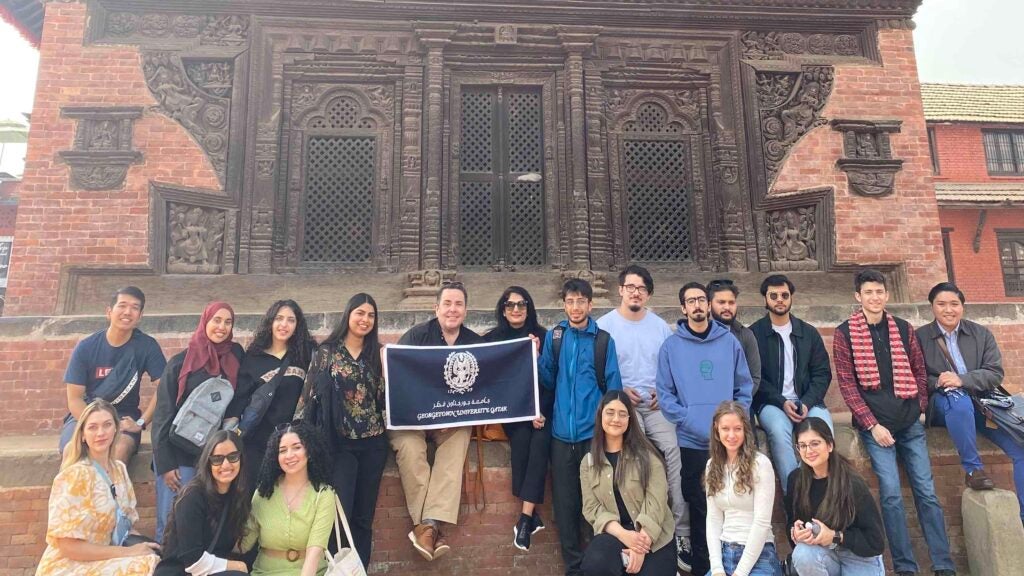
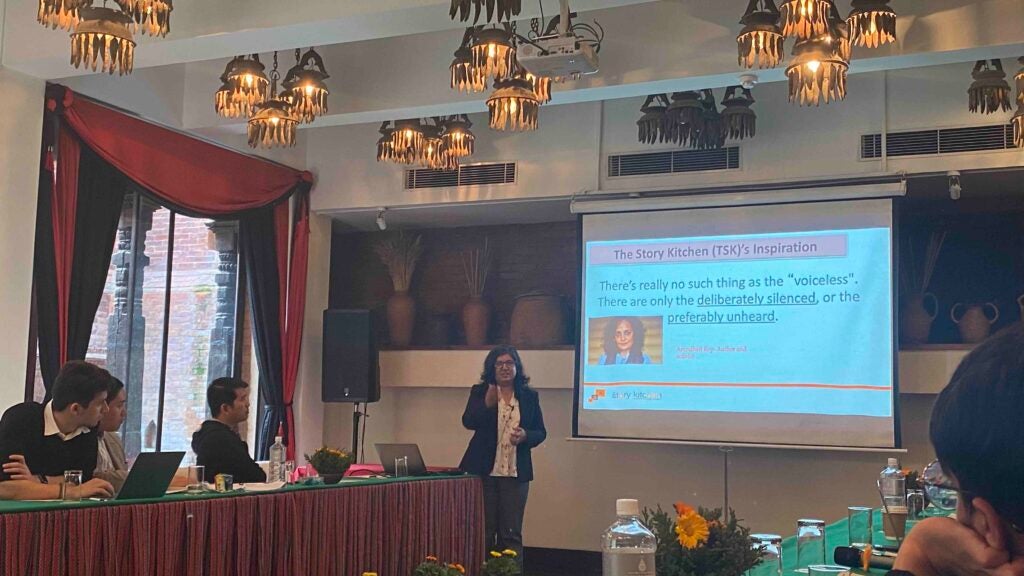
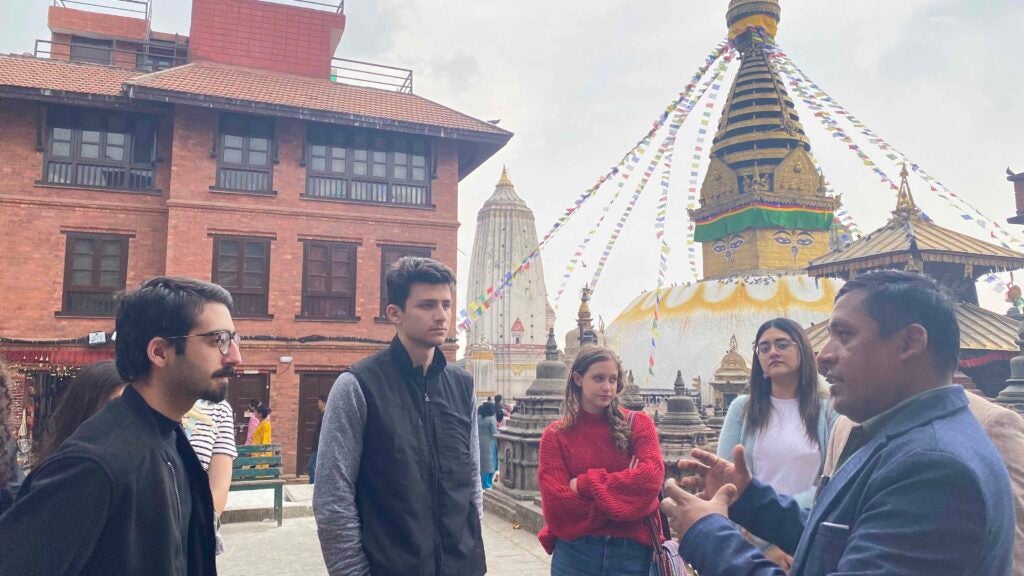
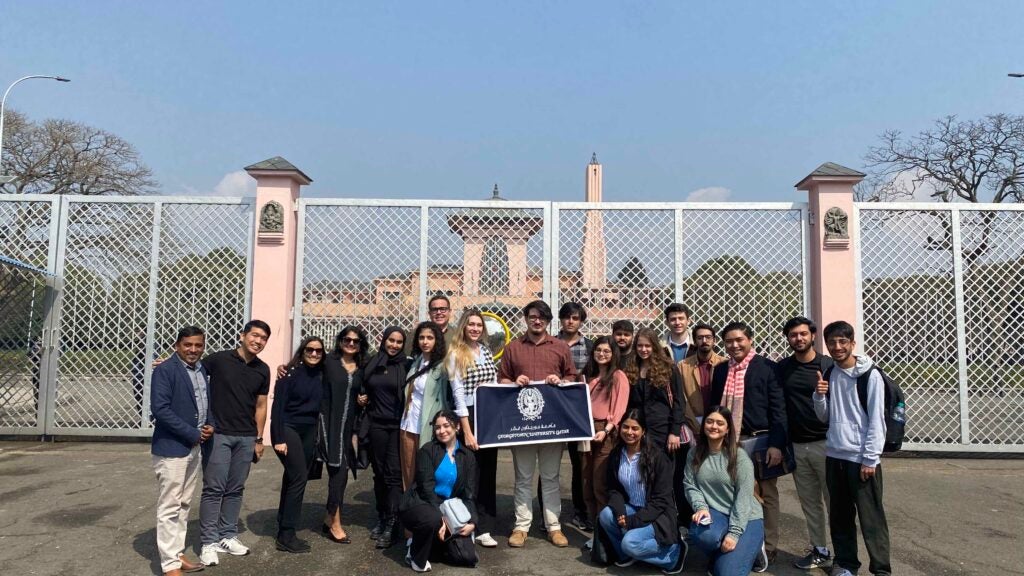
About the Program
The Zones of Conflict, Zones of Peace (ZCZP) program enables students to study conflict management and resolution in its real-life application across the globe. Since 2007, the award-winning program has been taking students to zones of ethnic, political, religious and social conflict, with the goal of better understanding both the causes of the conflict and the difficult process of reconciliation.
The 3-credit course taught by a faculty subject expert on the region begins by exploring the conflict, followed by a one or two-week long a faculty-led trip to the region. During the trip, the group meets with key witnesses, politicians, and change-makers, and visits points of historical interest in order to connect their academic learning with first hand accounts and experiences with the current reality on the ground in the zone of conflict.
How to Apply
Approximately 15 students are chosen each year for this special program and course. Students selected for the program are required to be in good academic standing and go through a competitive application process that includes personal reflections and academic essays. Contact Student Life for more information.
Past Programs
The Spring 2023 program explored the People’s War in Nepal (1996-2006) through classroom instruction on the Maoist insurgencies and how it impacted migration, and a week long trip to Nepal during spring break to talk to those who experienced it first-hand, and are actively working to rebuild following the war.
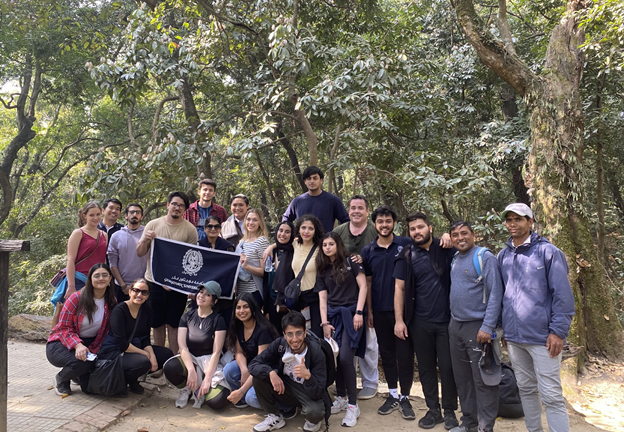
Students Travel to Nepal for Experiential Lessons in Conflict Resolution
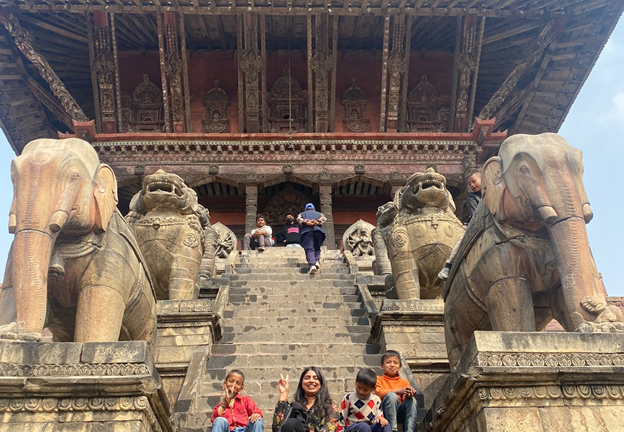
Students Reflect on Their Experience
All Trips
Nepal
Spring 2023—Dean Brendan Hill and Associate Director of CIRS Zahra Babar took 17 students to Nepal to study the People’s War (1996-2006). The class looked at the Maoist insurgency and the long term effects that it had in Nepal and on migration.
Spain and Basque Country
Spring 2019—Professor Sonia Alonso Sáenz de Oger and students traveled to the Basque Country, an autonomous region in Spain, to study the causes of the ETA armed political struggle and the strategies used to create peace after 40 years of violence in the region.
China
Summer 2018—Students learned about the history and culture of Muslims in China with Professor Max Oidtmann. The group started in Beijing, and traveled to other cities by plane and train to get a better understanding of life for Chinese Muslims.
Japan
Summer 2017—Professor Kai-Henrik Barth led 15 students to Japan to studythe dropping of the atomic bombs on Hiroshima & Nagasaki.
Oman and Tanzania
Summer 2016—Professor Rogaia Abusharaf took 14 students to study the history, politics, and aftermath of the violence that accompanied the expulsion of Arabs during the 1964 revolution in Zanzibar.
Zanzibar
The group focused on tackling the lack of information on the ethnic conflict in Zanzibar, and looked at how genocide is constructed and labeled in the international community, along with concepts of ethnic cleansing, reintegration and repatriation.
United States
Spring 2015—Tracing the culture, history and politics of Muslims, 11 students visited the United States on a trip led by Professors Karine Walther and Abdullah Al-Arian. The group focused on the historical path of migration of Muslim immigrants, their cultural productions and the political challenges they have faced in the US in the 20th and 21st centuries.
South Africa
Summer 2014—14 students looked at the use of sports, arts, and culture in ongoing reconciliation in the 20 years after the 1994 end of apartheid.
Northern Ireland
Spring 2014—16 students looked at the use of sports in reconciliation efforts since the signing of the 1998 Good Friday/Belfast Agreement.
Germany and Poland
Summer 2013—15 students traveled to Germany and Poland to learn about the Holocaust, its subsequent memorialization and efforts in regards to reconciliation and justice.
Rwanda
Spring 2013—13 students learned about the 1994 genocide, and the subsequent memorialization, reconciliation, and justice efforts in Rwandan society after the event.
Timor-Leste
Summer 2012—15 students explored truth and reconciliation efforts in the aftermath of the Indonesian occupation from 1975 to 1999, the transitional administration by the United Nations and the East Timorese independence in 2002.
Cambodia
Spring 2012—16 students studied reconciliation and memorialization efforts in the aftermath of the 1975-1979 genocide, with a focus on international law and the ongoing Khmer Rouge trials.
South Africa
Summer 2011—14 students looked at the use of arts and culture in ongoing reconciliation efforts in the years after the 1994 decree to end apartheid.
Northern Ireland
Spring 2011—Students looked at the use of arts and culture in ongoing reconciliation efforts after the signing of the 1998 Good Friday/Belfast Agreement.
Bosnia and Herzegovina
Spring 2010—Students studied educational, governmental, and economic realities in the 15 years following the Srebrenica genocide.
Cyprus
Spring 2010—13 students learned about the conflict on the divided Mediterranean island between the internationally recognized state of Cyprus and the unofficial Turkish Republic of Northern Cyprus.
Germany and Poland
Summer 2009—Students traveled to Germany and Poland to learn about the Holocaust, its subsequent memorialization, and efforts at facilitating unity and justice.
Rwanda
Spring 2009—Students learned more about the 1994 genocide, attempts at collective remembrance, and the reconciliation and justice efforts in Rwandan society.
Palestine and Israel
Summer 2008—12 students traveled to Palestine and Israel for the first program trip under the new Zones of Conflict, Zones of Peace name. The group learned about the diversity of the respective areas, as well as the social and political realities and motivations of the many sides involved in this contentious conflict.
Jordan
Summer 2007—Labeled as the first ZCZP experience, the focus of this trip was on micro-finance and small business enterprises. Eleven students spent two days with the Jordanian Hashemite Fund for Human Development (JOHUD), sought to better understand the situation of Palestinian and Iraqi refugees, and finished by working on a build with Habitat for Humanity.